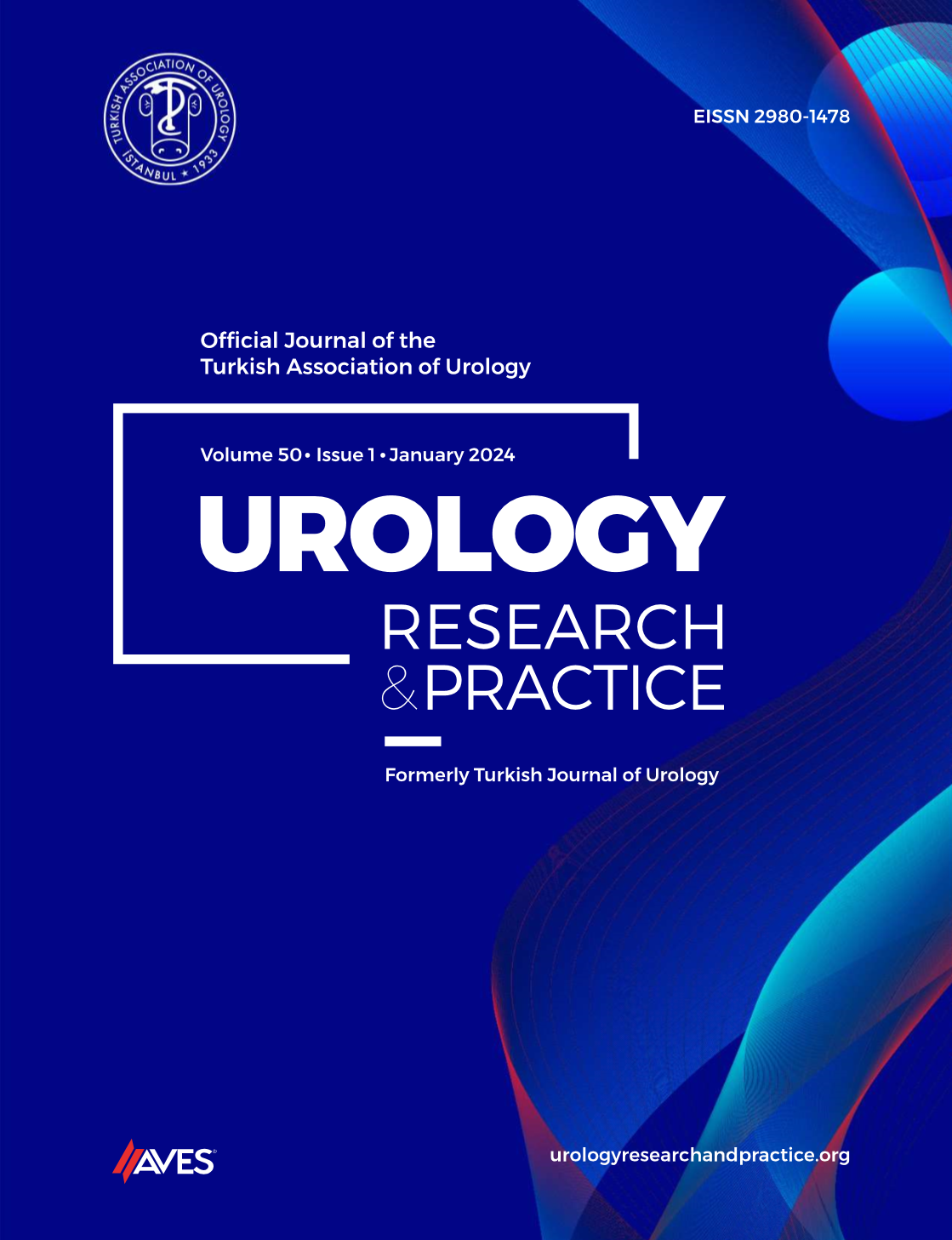Abstract
Objective: The aim of this study was to evaluate the erectile dysfunction (ED) in patients who have been followed up and treated with the diagnosis of Behçet disease.
Materials and methods: Between January 2004 and December 2008 a total of 41 patients (Group 1) with the diagnosis of Behçet Disease and 38 patients as control group (Group 2) were included into the study. All patients were evaluated with detailed medical history, physical examination, routine hematologic and biochemical analysis and hormon prophiles. Erectile dysfunction was evaluated with International Index of Erectile Function (IIEF). For the assessment of psychiatrical status, Beck Depression Inventory was used.
Results: The mean age of the patients in Group 1 and Group 2 was 39.25±12.20 (range 21-67) year and 37.41±12.29 (range 24-69) year, respectively (p=0.977). While mean follow-up period was 3.8 year, the erectile dysfunction rates were 43.9% (n=18) and 18.42% (n=7) in Group 1 and in Group 2, respectively (p=0.028). The psyschiatric disorder rates were 43.9% (n=18) and 18.4% (n=7) in Group 1 and in Group 2, respectively (p=0.009). Multivariate analysis showed that Behçet disease and age were more powerful predictors than physchiatric status for ED in patients with Behçet disease (odds ratio 7.385, 95 %CI 1.303-41.844 and odds ratio 1.192, 0.95%CI 1.071-1.327, respectively).
Conclusion: This study revealed that there is a relationship between Behçet disease and erectile dysfunction. However, further randomized and controlled studies with larger sample size are needed to support these results.

.png)


.png)